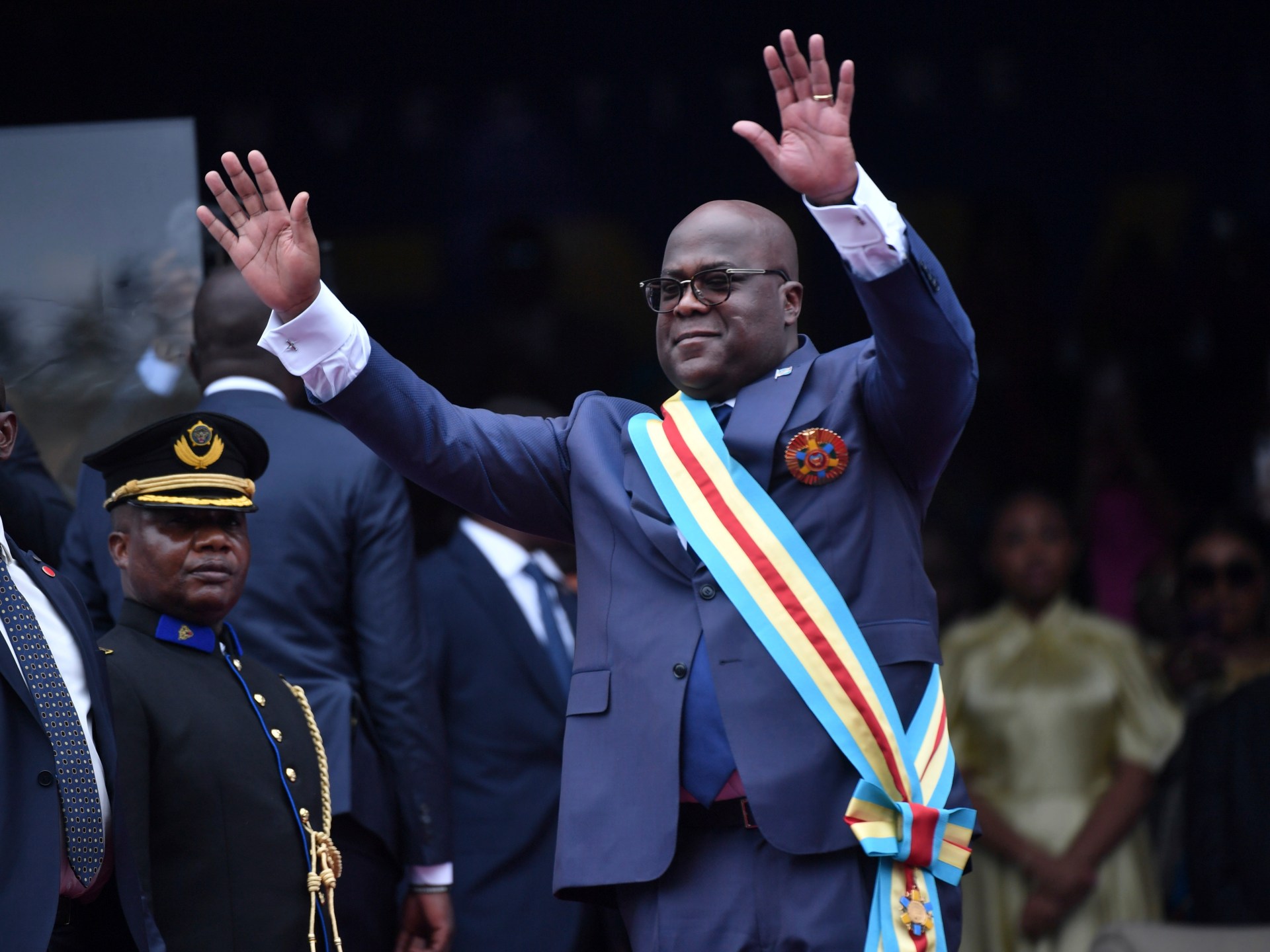
US Defense Secretary Lloyd Austin praises a “new era of security” in the Asia-Pacific region, facing fierce resistance from a senior Chinese official.
US Secretary of Defense Lloyd Austin hailed a “new era of security” in the Asia-Pacific region and stressed that the region remains an important strategic priority for the US, but this was met with immediate resistance from a senior Chinese military official.
Austin made the statement on Saturday, a day after he held a key meeting with his Chinese counterpart Dong Jun in Singapore, where they agreed to limit military communications as part of efforts to ease the growing tensions between the two largest economies in the world.
China welcomed the face-to-face talks on Friday and the agreement to repair fragile security relations as “stabilizing.” But competition and tensions over a range of issues – from Taiwan for the South China Sea – continues to test the resolve of both countries.
On Saturday, Austin said there had been a “new convergence on virtually all aspects of security” in the region over the past three years and that there was a shared understanding of “the power of partnership.”
“This new convergence is creating a stronger, more resilient and more capable network of partnerships and defining a new era of security” in the region, Austin said at the Shangri-La Dialogue in Singapore.
However, it is not about “enforcing the will of any country” or “bullying or coercing,” Austin said. This was apparently a dig at China, which is increasing its sabre-rattling against the self-governing Republic of Taiwan and asserting its claims in the South China Sea with increasing confidence.
“This new convergence is about coming together, not falling apart,” Austin said. “It's about the free choices of sovereign states.”
In his response to Austin, Chinese Lieutenant General Jing Jianfeng accused the US of trying to build “an Asia-Pacific version of NATO” and called the superpower the “biggest challenge to peace and stability in the region.”
Jing said the US strategy was aimed at “creating divisions, provoking confrontation and undermining stability”.
“It only serves the selfish geopolitical interests of the United States and runs counter to the trend of history and the common aspirations of the countries in the region for peace, development and mutually beneficial cooperation,” said Jing, deputy chief of the Joint General Staff of China's Central Military Commission.
“Invite wolves”
Austin is trying to refocus attention on China's actions in the Asia-Pacific region and allay concerns that the conflicts in Ukraine and Gaza are distracting from his country's security commitments in the region.
“Despite these historic clashes in Europe and the Middle East, the Indo-Pacific remains our primary theater of operations,” Austin stressed.
“Let me be clear: The United States cannot be secure unless Asia is secure,” Austin said. “That is why the United States has long maintained its presence in this region.”
Austin also stressed the importance of alliances in the region, stressing the need for “peaceful resolution of conflicts through dialogue, not coercion or conflict.”
During their meeting on Friday, Austin was warned by Dong that the U.S. should not interfere in China's affairs with Taiwan, Defense Ministry spokesman Wu Qian told reporters. China claims the democratically governed island as its own territory.
Some U.S. officials warn that Beijing has become increasingly bold in recent years and has recently launched so-called “punitive exercises” across Taiwan.
China is also angered by the US's deepening regional defense relations, especially with the Philippines, and the regular deployment of warships and fighter jets in the South China Sea.
On Saturday, Austin insisted that the U.S. commitment to defend the Philippines under their mutual defense treaty remains “iron fist,” as repeated confrontations between Chinese and Philippine ships in the South China Sea have fueled fears of a larger conflict.
“America will continue to play a critical role in the Indo-Pacific, along with our friends throughout the region that means so much to us and that means so much to us,” Austin said.
Chinese General Jing said these alliances would only contribute to instability in the region.
“It is natural for neighbours to quarrel sometimes, but we need to resolve disagreements through dialogue and consultation rather than inviting wolves into our homes and playing with fire,” he said.






Recent Comments